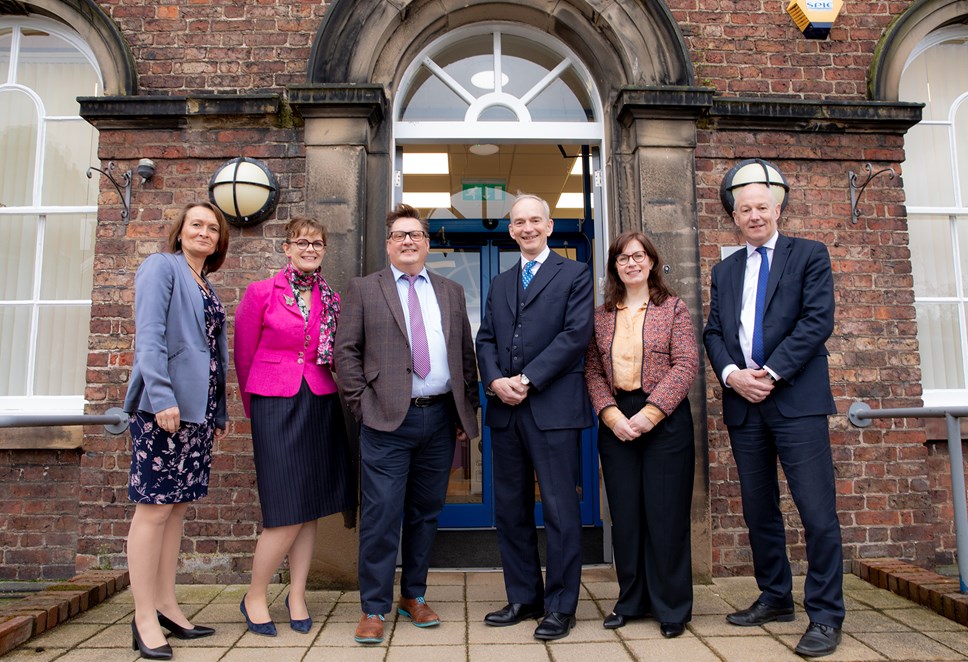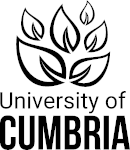
Proposed Cumbria School of Medicine - additional photos
University of Cumbria and Imperial College London announce plans for new medical school in Carlisle
Following a media event today, please find below a selection of images to accompany the story about the University of Cumbria and Imperial College London working together on a new graduate entry medical school in Carlisle.
Full story: University of Cumbria and Imperial College London announce plans for new medical school in Carlisle
ENDS
IMAGES
Image 1:
Colleagues from the University of Cumbria and Imperial College London meet John Stevenson, MP for Carlisle, who has been a huge advocate for the new medical school.
L:R Professor Julie Mennell, Vice Chancellor, the University of Cumbria, Professor Mary Morrell, Professor of Sleep and Respiratory Physiology, Professor Brian Webster-Henderson, Deputy Vice Chancellor (Health, Environment & Innovation), the University of Cumbria, Mr Martin Lupton, Vice Dean (Education), Faculty of Medicine, Imperial College London, Dr Lesa Kearney, Senior Teaching Fellow, Imperial College London, and Mr John Stevenson, MP for Carlisle.
Image 2:
Colleagues from the University of Cumbria and Imperial College London, and John Stevenson, MP in front of the former hospital at the Fusehill Street campus, Carlisle.
L:R Mr Martin Lupton, Vice Dean (Education), Faculty of Medicine, Imperial College London, Professor Julie Mennell, Vice Chancellor, the University of Cumbria, Mr John Stevenson, MP for Carlisle and Professor Brian Webster-Henderson, Deputy Vice Chancellor (Health, Environment & Innovation).
VIDEOS
Video 1 Mr John Stevenson, MP for Carlisle
Video 2 Professor Brian Webster-Henderson, Deputy Vice Chancellor (Health, Environment & Innovation), the University of Cumbria
Video 3 - Mr Martin Lupton, Vice Dean (Education) Imperial College London
NOTES TO EDITORS
About the University of Cumbria
At University of Cumbria you gain more than a degree, you are equipped and empowered to start a career and make a difference. We do this by making sure our courses meet the demands of an ever-evolving workforce and emerging markets.
Our teaching is led by expert practitioners, engaged in research and scholarly activity and at the forefront of their disciplines. We offer flexible learning, work experience and a safe space for critical challenge and experimentation.
What makes us distinct are our locations, contribution to the vibrancy of place and meeting market demand. With five campuses across Carlisle, Ambleside, within the Lake District World Heritage Site, Lancaster and London, we are connected with landscapes, culture and specialist industries that no other university can offer.
We have a proud history of offering a wide range of degrees across health, sports, social work, teaching, business, law, science, conservation, outdoor studies, arts, creativity, tourism, policing and more. With new courses being developed every year, including a vast range of continuous professional development courses, degree apprenticeships and foundation degree courses, the University of Cumbria makes the impossible possible for more people.
Stay focused. Go far. Find out more at cumbria.ac.uk
About Imperial College London
Imperial College London is one of the world's leading universities. The College's 20,000 students and 8,000 staff are working to solve the biggest challenges in science, medicine, engineering and business.
Imperial is the world’s fifth most international university, according to Times Higher Education, with academic ties to more than 150 countries. Reuters named the College as the UK's most innovative university because of its exceptional entrepreneurial culture and ties to industry.
Imperial staff, students and alumni are working round-the-clock to combat COVID-19. Imperial has nearly two thousand key workers, and is at the forefront of coronavirus epidemiology, virology, vaccine development and diagnostics. More than one thousand Imperial staff and students are volunteering to support the NHS.
